AARP Hearing Center


Chapter 25
Tuesday May 31, 2016
IT'S 8 A.M. BEFORE THEY can get all the files set up in the conference room at Pearse Street and get the necessary people to sign off on me looking at them.
I down an espresso and Griz and I wait while people scurry around, bringing in boxes and laptops. Roly made me come in a back door; there’s a scrum of reporters along the narrow sidewalk by the main entrance. Looking out the second-story window, I can see Stephen Hines, the great bulk of him leaning casually against the wall. He’s looking at his phone, waiting there as if he has all the time in the world.
“Where do you want to start?” Griz asks, once we’re alone. It’s a gorgeous day, the sun streaming in the windows. I move my chair into a beam of light flopping across the conference table.
“Explain the system,” I tell her. She goes over the evolution of Garda investigation recordkeeping, typed and signed statements from interviews in the ’90s, casebooks with all the relevant information included, files and files of paper. Then there are recorded and transcribed interviews and some digital records for more recent cases. It’s a hodgepodge, like the records for any law enforcement investigation spanning twenty-three years. But I’m lucky — because of the task force and cold case review, almost everything I want to look at has been copied and is stored together in neatly labeled files.
“I can find things for you and bring you casebooks or any other files you might want,” she says. She has on a bright yellow blouse and red pants. Her hair is glossy, tucked behind her ears, and her reading glasses are red and yellow plaid to match her outfit. My black sweater and jeans feel funereal next to her bright colors.
“I want to start with the initial missing person reports and the postmortems,” I tell her. “I want to come up with a rough profile. Then I’m going to read through everything quick and see if anyone jumps out at me.”
I think of Len Giacomo and try to clear my mind of all my preconceptions. I start reading, translating the initial Garda reports and the pathologist’s jargon into my own shorthand so I’ll have all the essential details at my fingertips.
After a couple of hours of reading and asking Griz to find details, I have five sheets of paper. I write each victim’s name and a few details underneath each, then circle each name.
Katerina Greiner, 24, brown hair, brown eyes, German national. Date of disappearance not known. COD cranial blunt force trauma. Sexual assault unknown.
Erin Flaherty, 23, blue eyes, brown hair, average height and weight. American. No remains found. Last seen at bed-and-breakfast in Glenmalure Sept. 17, 1993. Evidence suggests she may have returned to Dublin. Remains not found.
Teresa McKenny, 19, brown hair, blue eyes, Irish national. Last seen June 18, 1998. Disappeared while walking along the R747. Body discovered July 5. Evidence suggests death occurred not more than two days prior. COD cranial blunt force trauma. Evidence of repeated sexual assault. Evidence of adhesive around mouth. Evidence of ligature marks on both wrists. No physical evidence due to submersion in water.
June Talbot, 30, blond hair, green eyes, English. Disappeared September 3, 2006 near Baltinglass Abbey. Body discovered September 17. Death not more than two days prior. COD cranial blunt force trauma. Evidence of repeated sexual assault. Evidence of adhesive around mouth. Evidence of ligature/ wrists. No physical evidence due to submersion in water.
Niamh Horrigan, 25, brown hair, blue eyes, Irish. Disappeared May 21, 2016, near Glenmalure, likely from road. Button from clothing found near road.
Then I start adding the persons of interest who orbited around each victim. Katerina Greiner doesn’t have many. Erin’s I’ve already done. Teresa McKenny had quite a lot: family, friends, the people she worked with at the golf course. June Talbot had fewer: her boyfriend, his family, her friends from work. For Niamh, Griz prints out the emailed list they’re working with down in Wicklow. All of hers are in Galway: family, friends, former boyfriends, the kids she taught and their families. I spread my sheets of paper out and look them over.
“So, the adhesive,” I say. “He kept them somewhere he was worried about being overheard. He had to duct tape their mouths. He has a place to bring them, but he can’t risk them being overheard.”
“Yeah, we had that, too,” Griz says. “We told Regan’s team. When they did the house-to-houses they had that in mind.”
“At the same time, though,” I say, thinking out loud, “the repeated sexual assaults. He had somewhere safe to keep them, somewhere he wasn’t too worried about being caught. He was able to rape them whenever he wanted.”
Griz doesn’t say anything. I look up and meet her eyes. “I know,” I say. “It’s awful. He has a place. A place where he can keep them, where he can do what he wants. That’s why we haven’t had any sightings of Niamh. She’s somewhere secure.”
I think of the outbuildings that Roly and I saw when we visited Drumkee, but Griz says, “They’ve searched all around there. They’ve visited every house. Twice. Probably three times by now. But it could be further out, it could be halfway across the country.”
“Yeah, but he’s got a territory. See if you can get a sense of those house-to-houses. Anything they might have missed.” I stare at the map they’ve brought me, with the locations of the abductions and the bodies, the places where Erin had visited and where Niamh was hiking. I draw a circle around the dots, Baltinglass to Aughrim to Glenmalure to Glendalough and back to Baltinglass. It’s a neat triangle, with the long green shape of the mountains in the center. “There’s some pattern here, some routine, that we’re just not seeing.”
Griz looks skeptical. They’ve spent years looking for patterns. “I know,” I say. “If there was one, someone would have found it. It’s just ... his vehicle. He’s got some way of getting them into his vehicle. When Roly and I visited the spot, I felt like I could see it. A woman walking on a desolate road. A vehicle pulls over, she approaches it. For some reason she trusts him. Suddenly she realizes, but it’s too late.”
“We checked gardaí, mail deliverers, ambulance drivers. We’ve been over and over it.”
“Yeah. I know.” I don’t tell her what I’m thinking. What if they trusted the vehicle because there was a woman in the passenger seat?
“All right,” I say. “I’m going to take a look at all the persons of interest, see if anyone gets my Spidey sense going. Could you make a list of any eyewitness statements or surveillance video from all of the abduction sites? Try to keep the window fairly narrow — say, the day of the abductions? I know you guys probably tracked down anyone you saw, but I just want to see if there’s anything that jumps out.”
“Of course,” Griz says. “Good luck with the Spidey sense.”
***
We work all afternoon, Griz diligently going back and forth between the files and her computer, searching for the dates of the abductions and listing any witness statements from those days, then collating them with all the vehicles and pedestrians caught on video on the days of the abductions.
I start reading through interviews with persons of interest who were interviewed by the Guards. The ones for Niamh Horrigan aren’t all transcribed and filed yet, but I read about all of the people interviewed right after Teresa McKenny went missing and then everyone they spoke with after her body was found. Most of the interviews are straightforward, everyone saying that she never would have taken off, that something must have happened to her, then an interview with an ex-boyfriend who seems to have a strong alibi for the day she disappeared.
There’s an interview with a groundskeeper at the golf course where she worked that I read twice. When asked if he knew Teresa McKenny and how she seemed before the disappearance, he said, “She was a little minx. If she got into trouble, it were her own fault.”
“Griz,” I say. “Can we look for anything in the system on the groundskeeper at the golf course where Teresa McKenny worked? Robert Herricks. Anything at all. I don’t like how he describes her. It’s not in keeping with the other descriptions of her and it just gets my back up for some reason.”
“Sure. I’ll get going on it.”
I have the rest of the Teresa McKenny statements and then June Talbot and then all of Erin’s to review. I flip through the files of transcribed Garda interviews. Emer Nolan. Daisy Nugent. Conor Kearney. Maggie D’arcy. I can feel my brain starting to slow. When I look at my phone, it’s almost eight. “Find anything?” I ask Griz.
“Not really. I got everything in order, though. Do you want to take a look?”
“A quick one. I’m getting tired.” I skim the list. “Is this the list of vehicles?”
“Yeah. That’s Teresa McKenny. So June eighteenth, 1998. No CCTV there on the R747 at that point, but there was one camera, a homeowner’s private security job, a bit further along the road, closer to Woodenbridge. I guess the guards down in Wicklow thought to get that and they tried tracing all of the vehicles that passed the camera that day. They didn’t get all of them; the angle was weird and they couldn’t see all the number plates. And obviously, they didn’t know if those cars continued along the road to Aughrim. But this is the list.”
I scan the descriptions: gray Ford, white delivery van, blue Mercedes. The words swim together, their meaning not making its way to my brain. “Okay,” I say. “What else?”
“Niamh Horrigan. We’ve got loads of CCTV footage from Saturday the twenty-first. We have her leaving the hostel in Glendalough. We have her passing a camera at the visitor’s center and walking towards the trails. A couple of walkers saw her on the paths, here and here.” She points to a spot on the map of the Wicklow Way. “So according to the statements from the walkers, she made it all the way to Mullacor. Then of course the button suggests she made it off the trails and onto the road.
“They did an analysis of all the CCTV around Glenmalure and on the main roads leading to and from the crossroads and in the other direction, to Laragh. There are about twenty vehicles that are in the right time frame. There aren’t any matches with the McKenny CCTV footage. Nobody who raised any red flags on the registrations. Here they are.” She hands over a typed list. I start scanning it: Red 2015 Ford Fiesta. 2008 Gray Skoda. White Citroën Dispatch. Skoda panel van. Blue Volkswagen. It looks typical for a Saturday.
“One of them must be it, though, right?”
“Well, maybe. Someone could have approached from a driveway between the site and where the cameras are. Some of them only drove to the crossroads. Some didn’t go as far as Glenmalure from the other direction. Or so they say. They were able to track down some of the drivers. Here they are. Everyone checked out okay.” I scan the statements. I was driving to see my mother in Templerainey. Our drivers make regular deliveries on that route every Saturday. I only drove to Greenane and back.
I look through similar searches that were done during Roly’s original review of the disappearances. They’d tried to get a sense of the cars that had passed nearby on the days Teresa and June went missing, but nothing had come of the query.
Someone even did a search of traffic or parking tickets given to anyone remotely connected with any of the investigations, just in case it threw something up. In fact, it threw up a lot. I scan the list of persons of interest or witnesses. Eda Curran got a parking ticket in Wicklow in 1998. Bláithín Arpin got a ticket for speeding in Glendalough in October, 1993, and another in 1997. A truck that was still registered to Niall Deasey’s garage got a ticket for illegal parking near where June Talbot was taken in 2006, but it turned out Deasey had given the truck to a nephew. In 1999 and again in 2004, Conor Kearney got parking tickets on Morehampton Road, in Donnybrook.
Conor Kearney.
I stare at the black forms of the words on the page. “I’m packing it in,” I tell Griz. “I need to sleep for a few hours. Let’s come back in the morning.”
Chapter 26
1993
IF ROLY BYRNE AND BERNIE MCNEELY had found anything on Niall Deasey or the American guys, they weren’t telling me about it.
It got colder. Uncle Danny’s mental health was deteriorating. My dad said he’d started bursting into tears behind the bar. I tried to stay busy while I waited for word. One afternoon, I ran all the way out Ringsend Road, where there was a park and walking trails heading out toward a lighthouse along the coast in the distance, and the two red-and-white-striped smokestacks I’d been spotting from afar since I’d arrived in Dublin. In front of me was the sea. The tide was out and the sand stretched forever, wet, dark ripples reaching for the water. Sandymount Strand. I walked fast in the sand, out into the indeterminate nothingness. There were several people walking out here, a couple with a dog, a few single figures against the milky white sky. I kept walking.
Am I walking into eternity along Sandymount Strand?
The ground was gentle folds, pocked with shells. I picked them up, salmon pink cockles and little scallops, tucking them into the pocket of my running shorts. I felt better, peaceful, suddenly and inexpressibly full of joy. There was something about the sight of the two candy-striped smokestacks against the sky that cheered me. The landscape was familiar. It was like I’d been here before, not just once, but thousands of times. I raised my arms to the sky and turned around, my eyes closed, feeling the wet wind against my face. My skin felt extra sensitive, my nerves taking in every little bit of stimuli: the breeze, changes in temperature, the sound of cars and buses shifting, a voice shouting to my right. I touched the back of my hand, where Conor’s thumb had rubbed small circles.
Conor.































































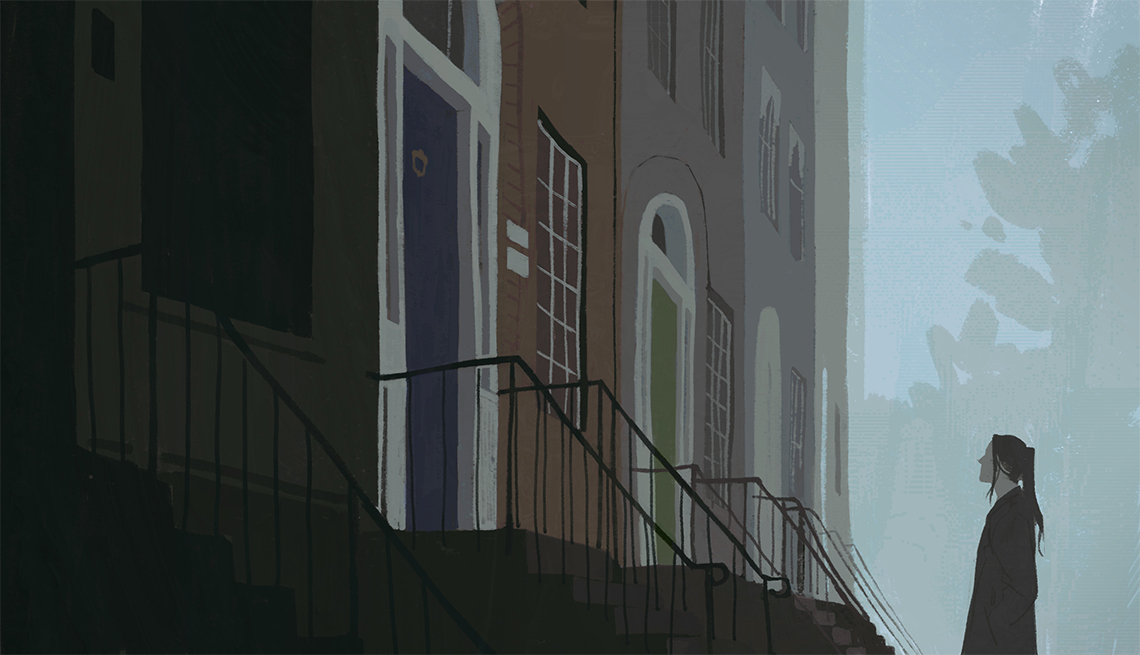
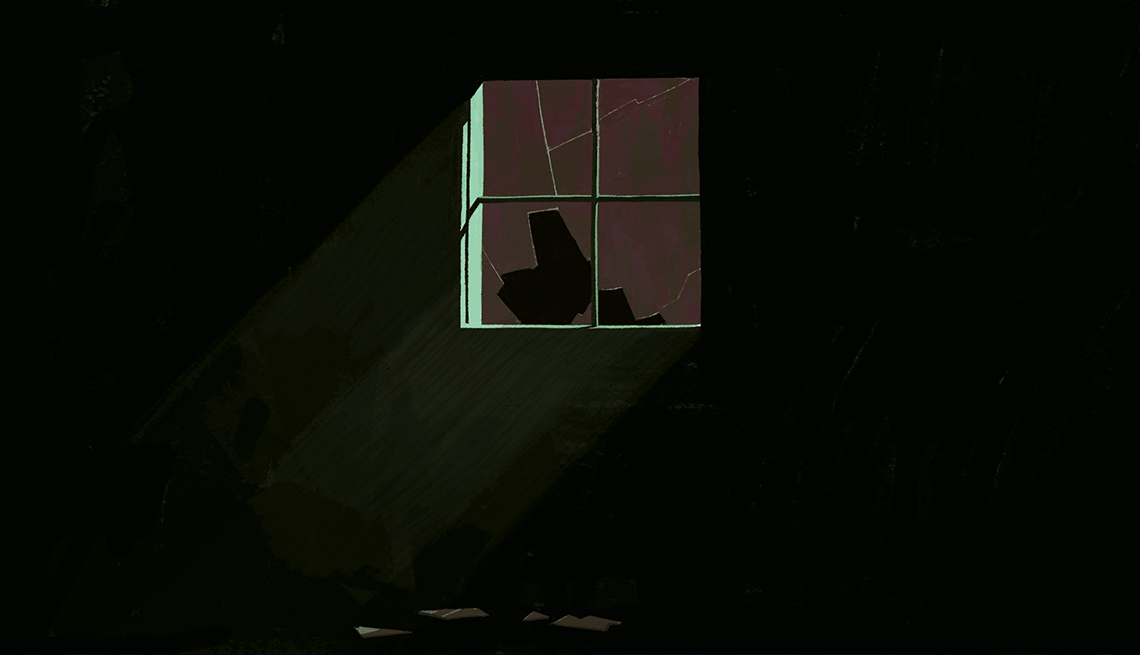
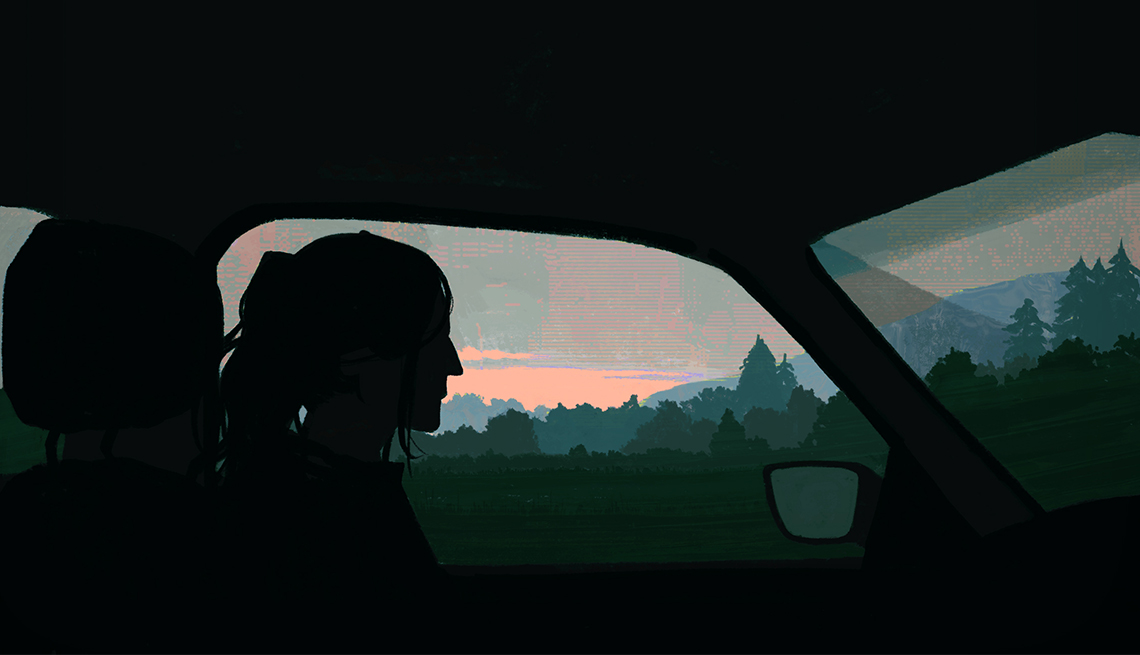
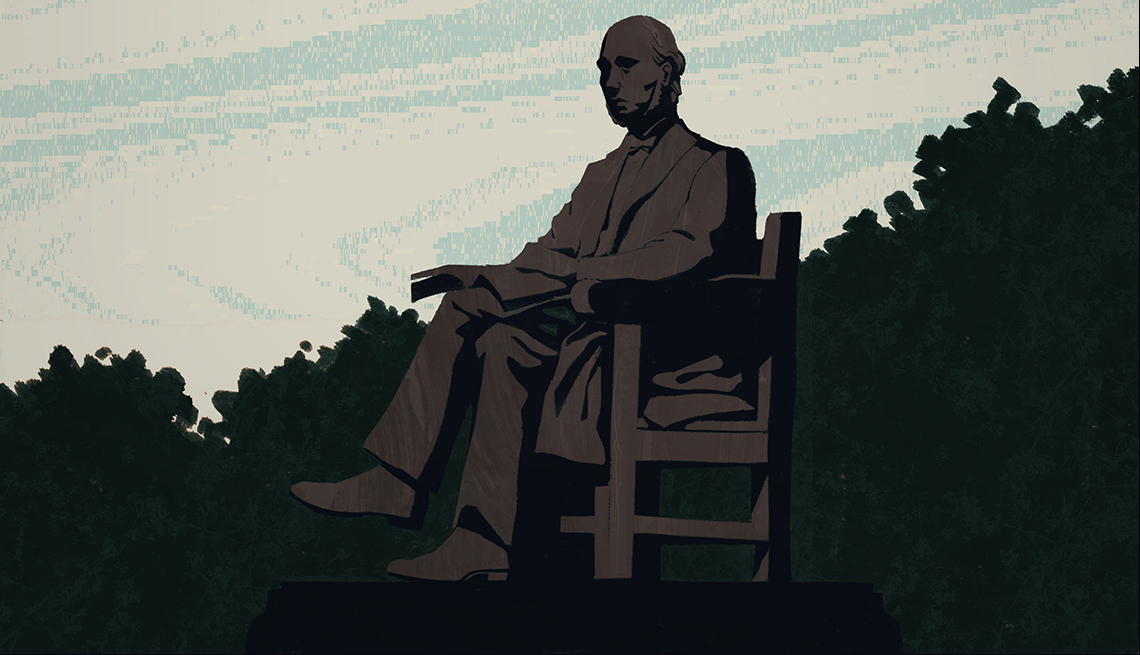
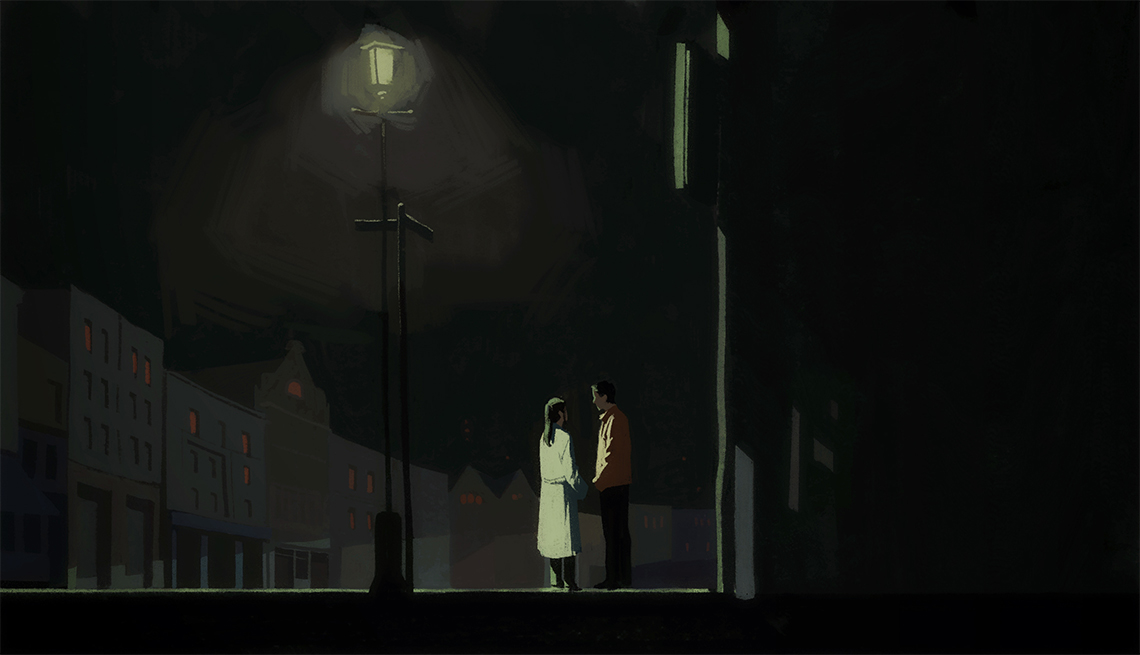
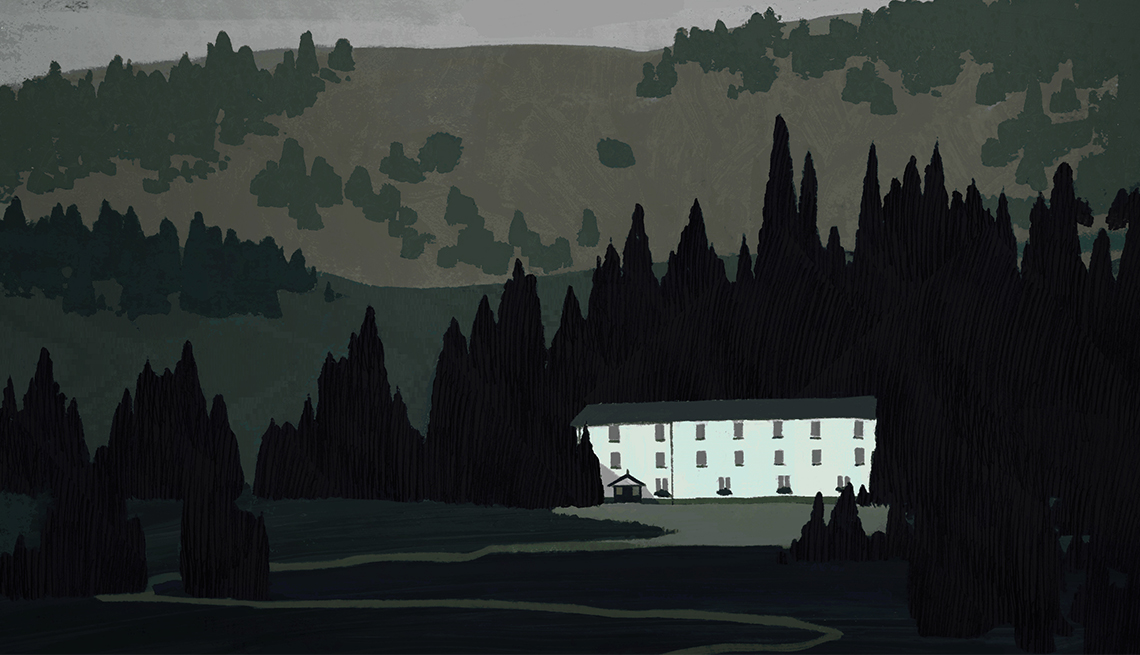
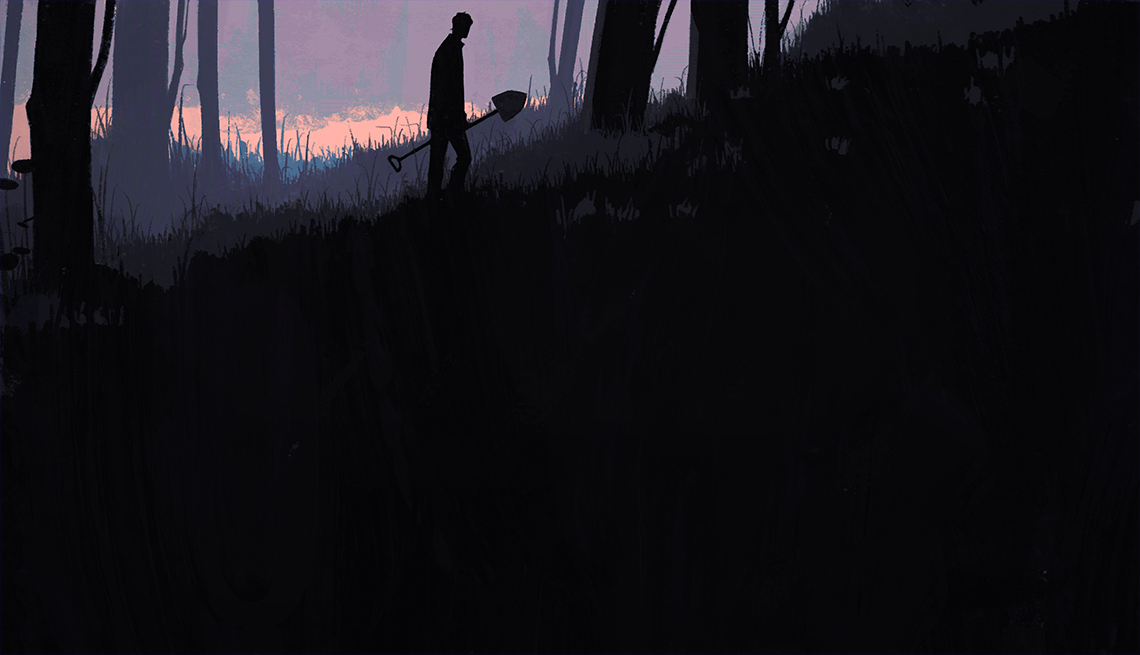
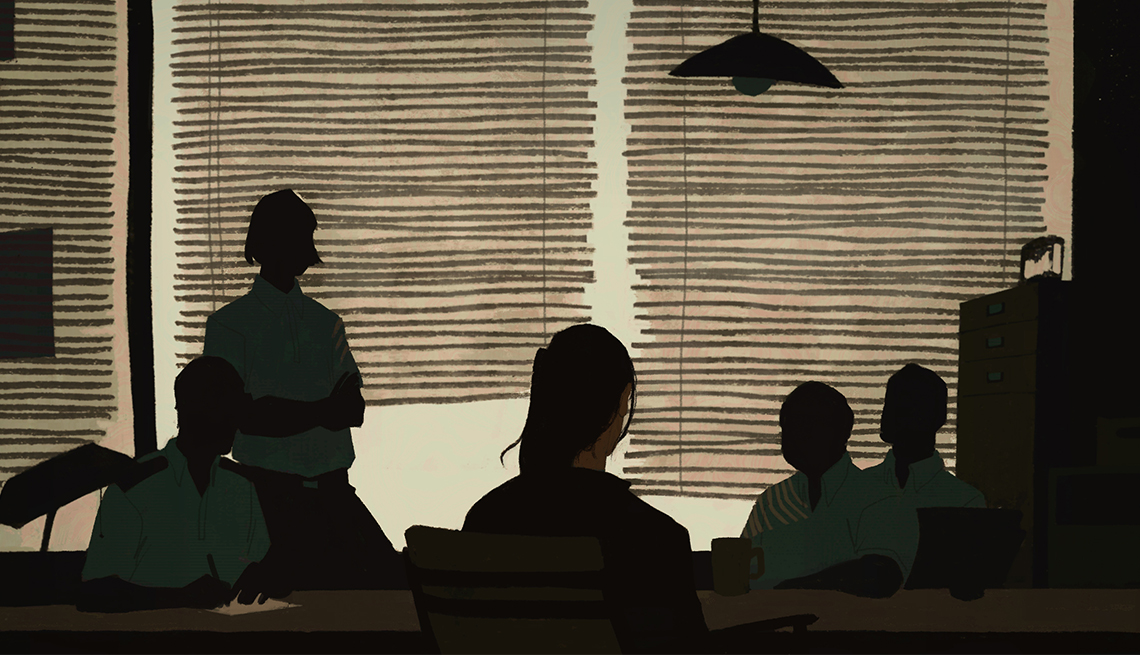
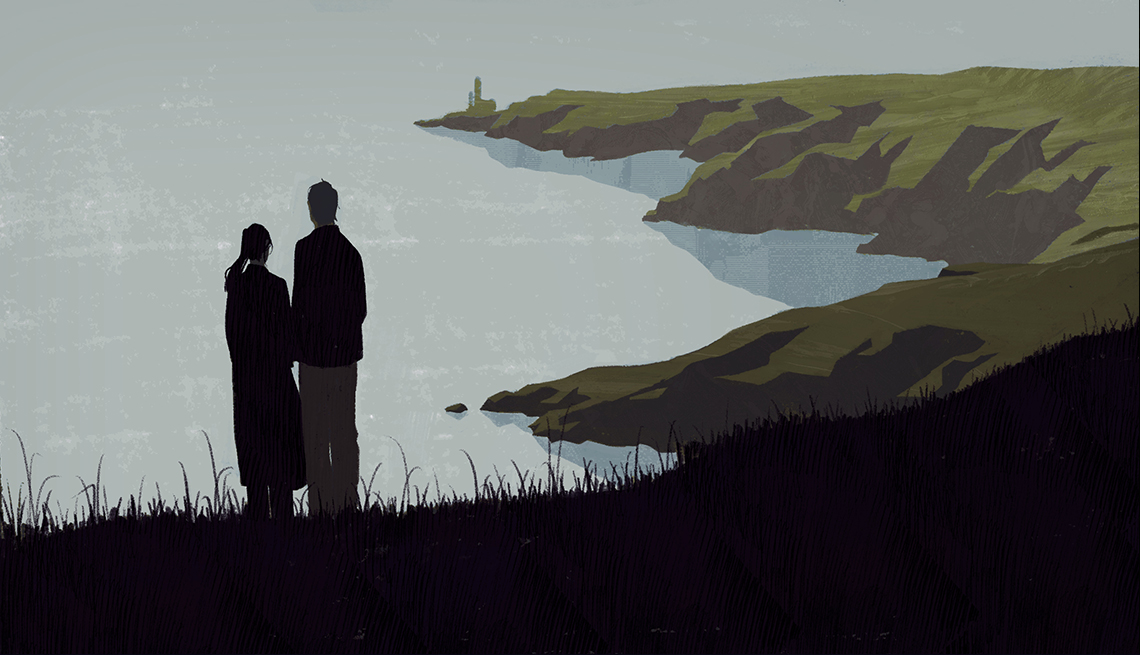
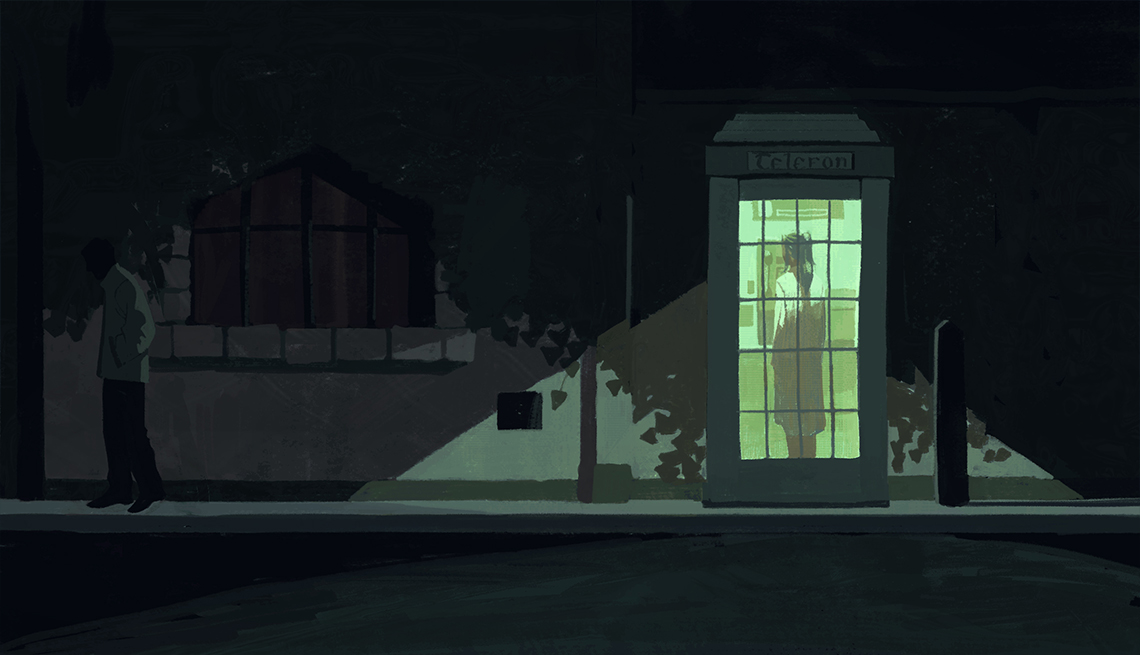
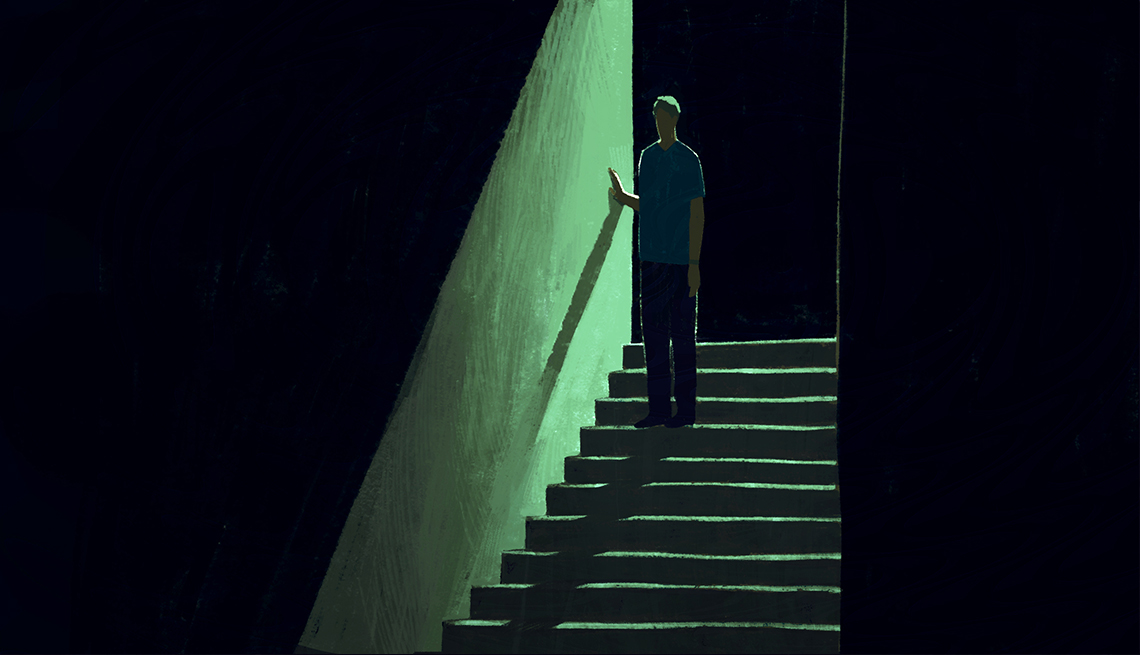
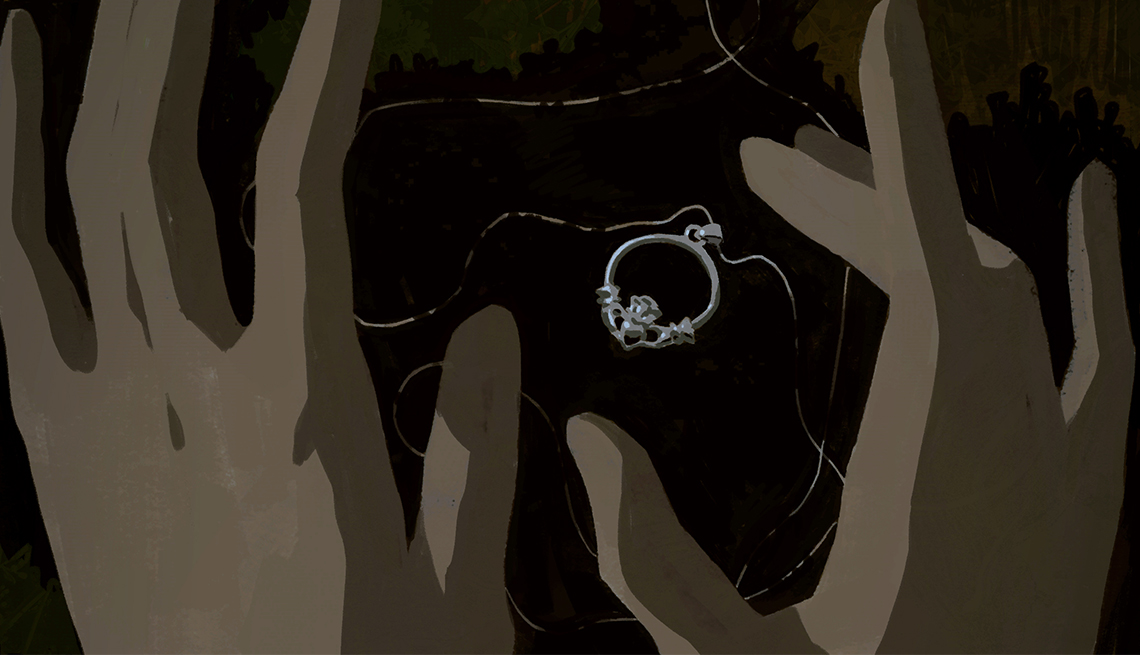
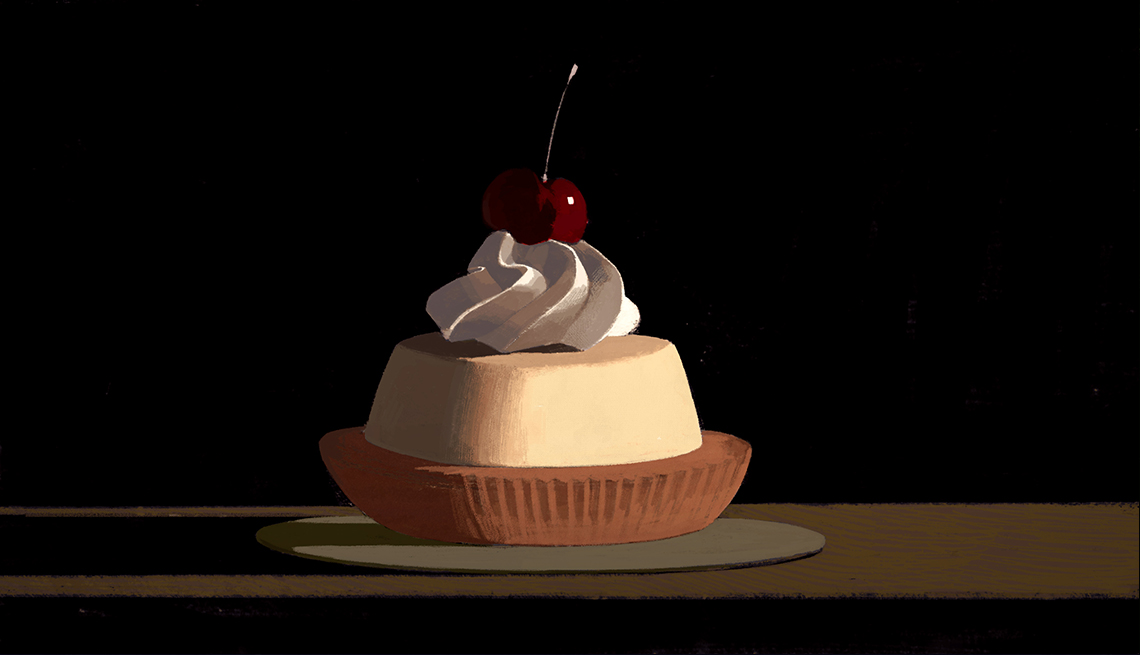
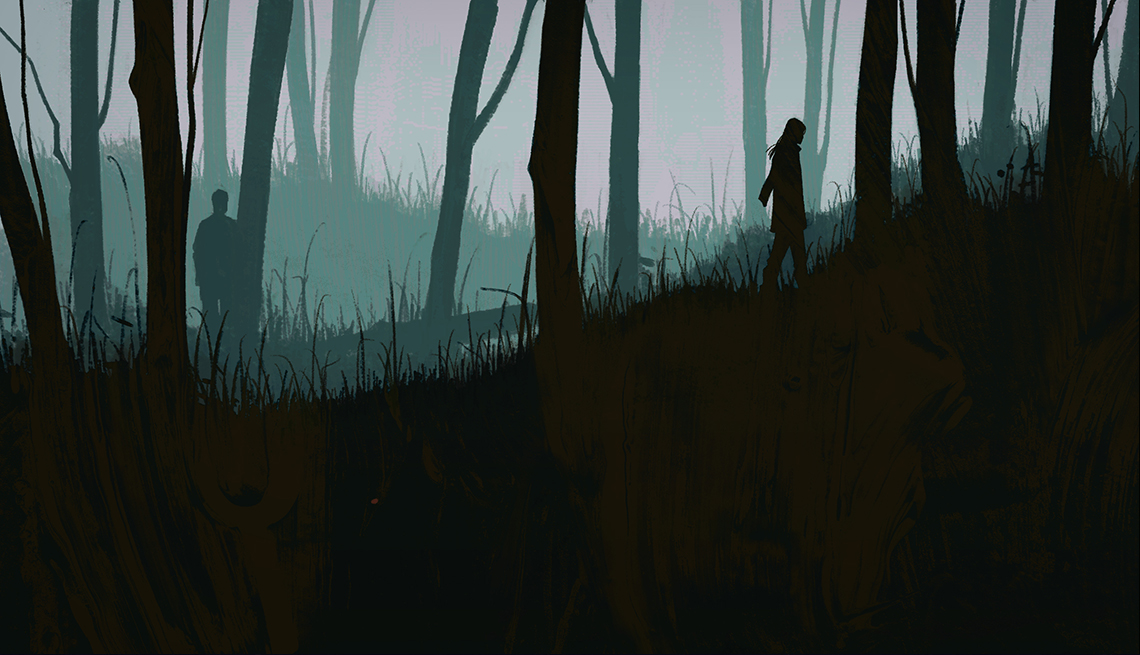
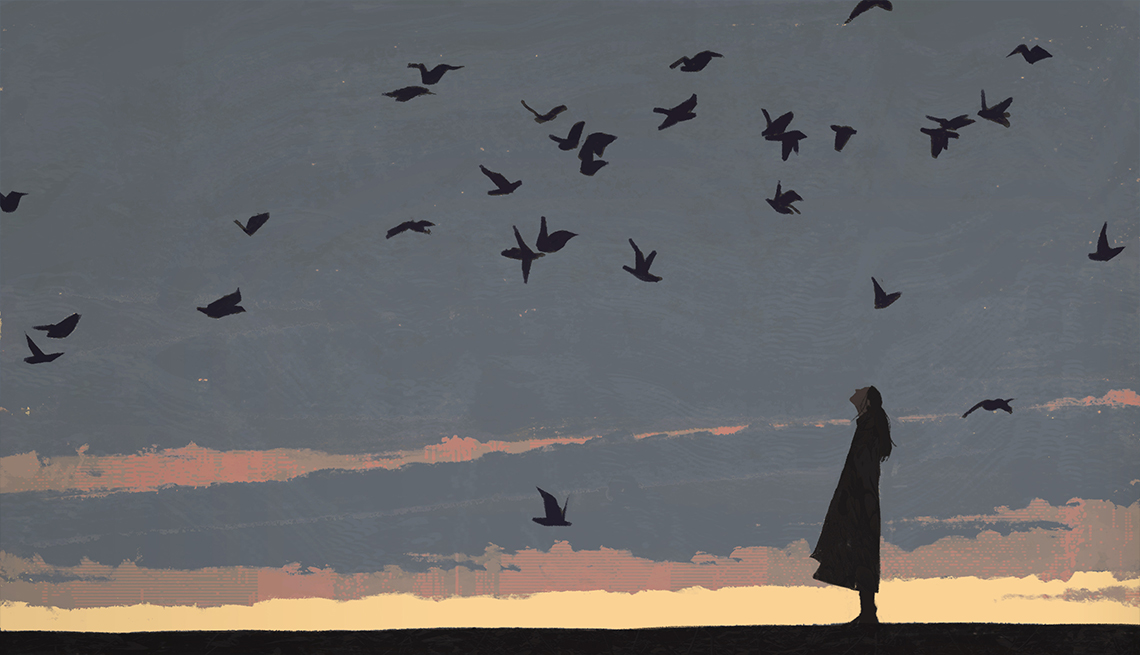
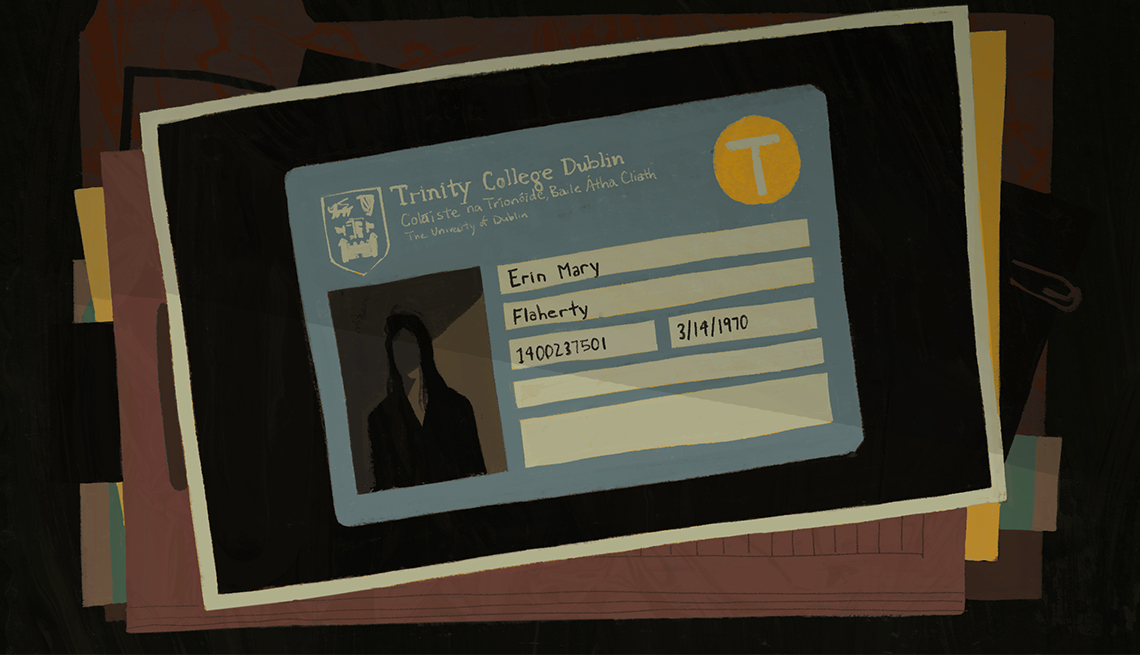
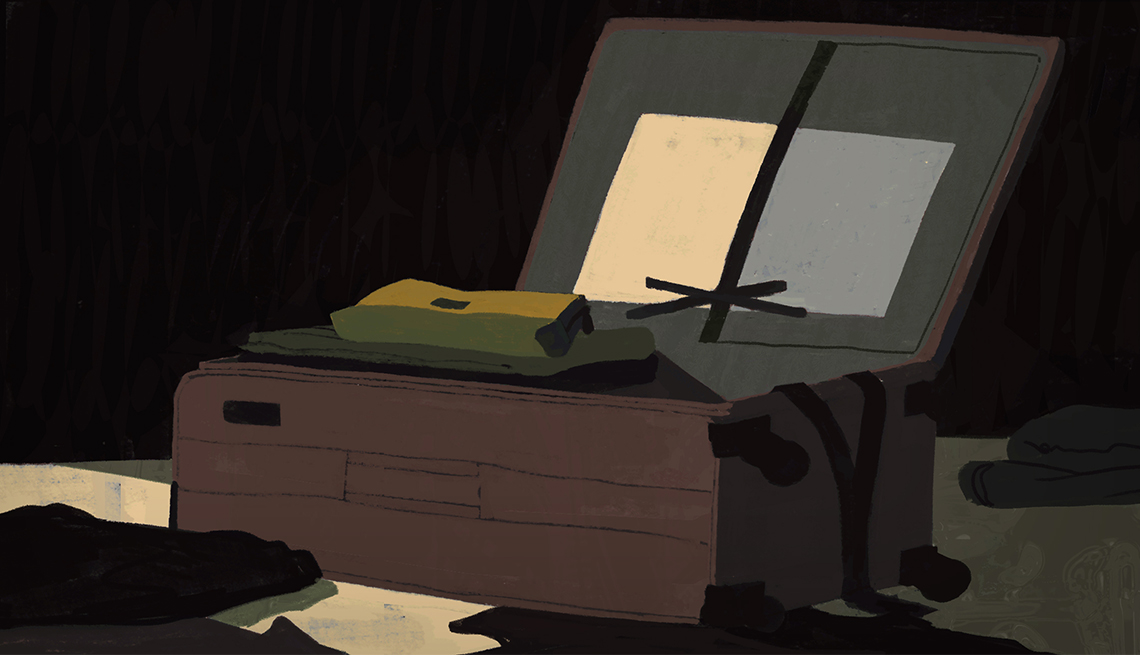
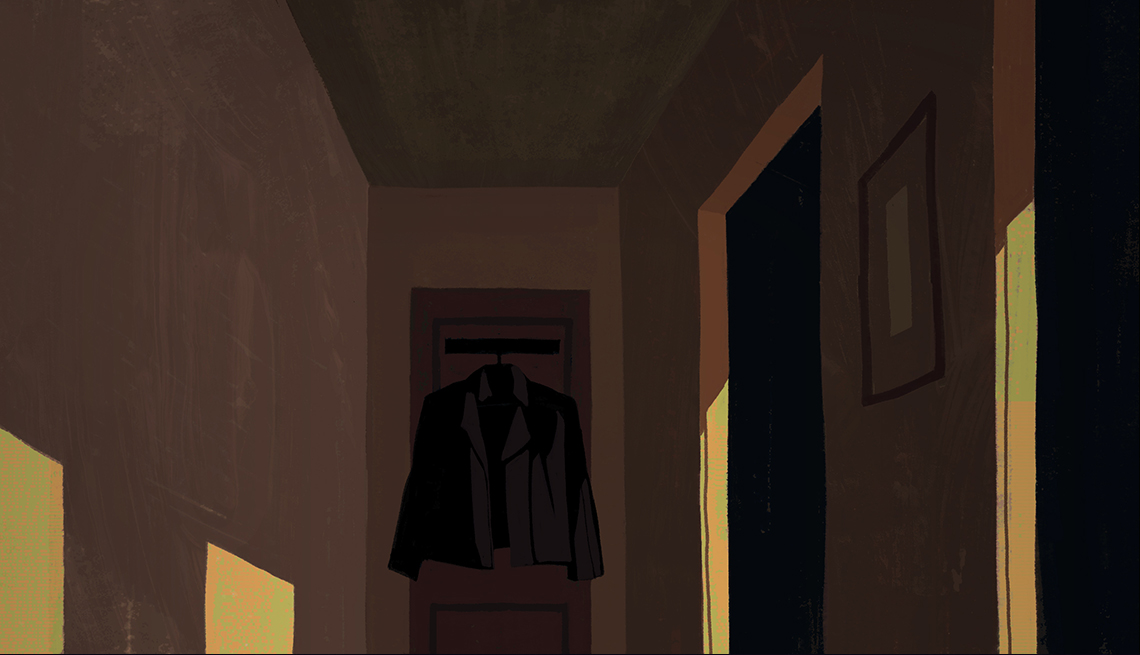
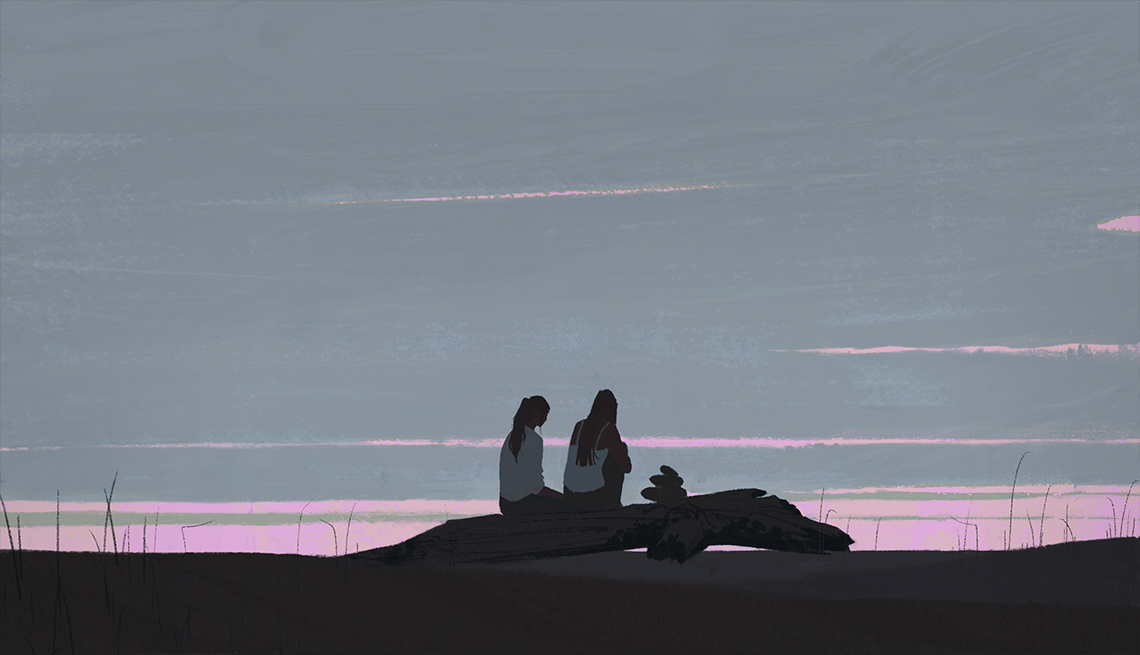
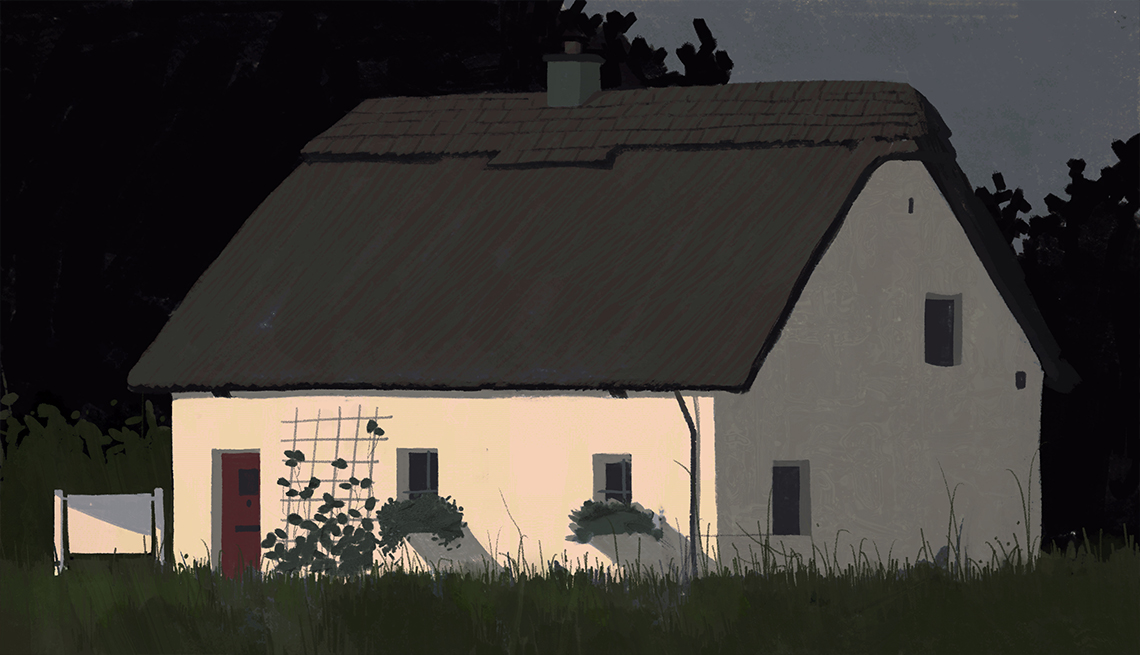
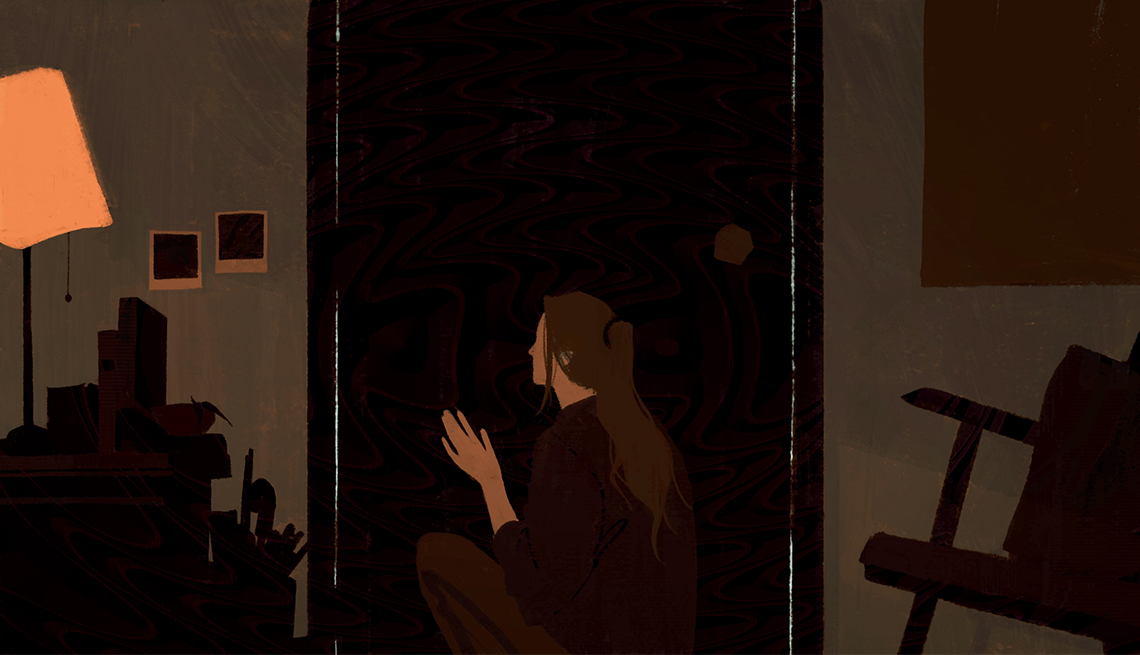
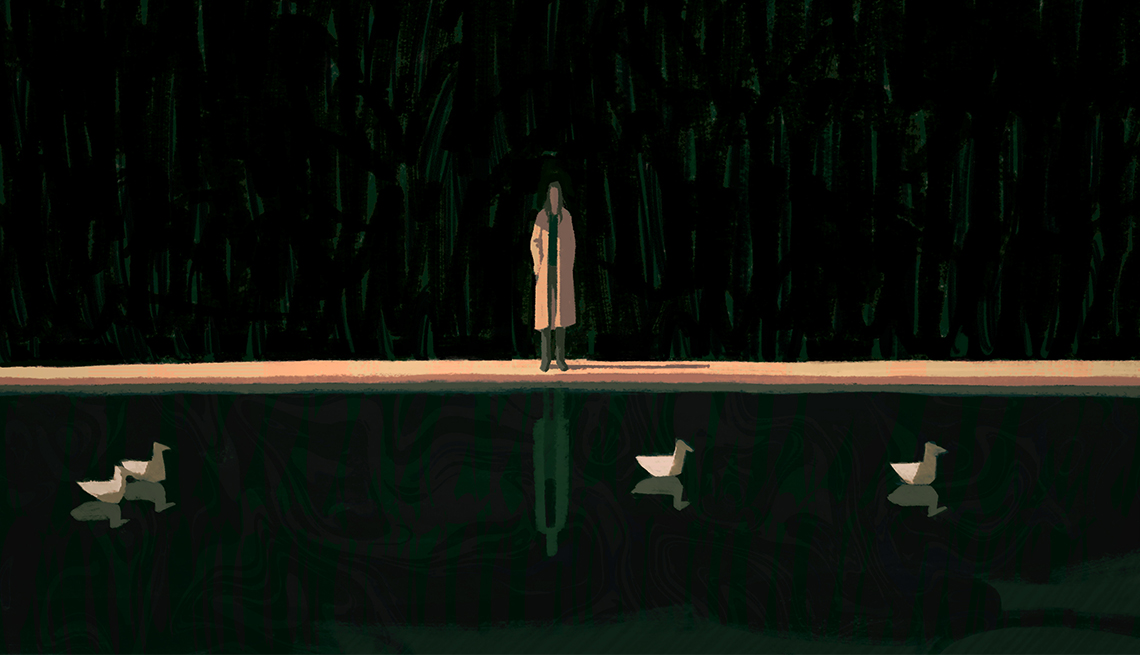
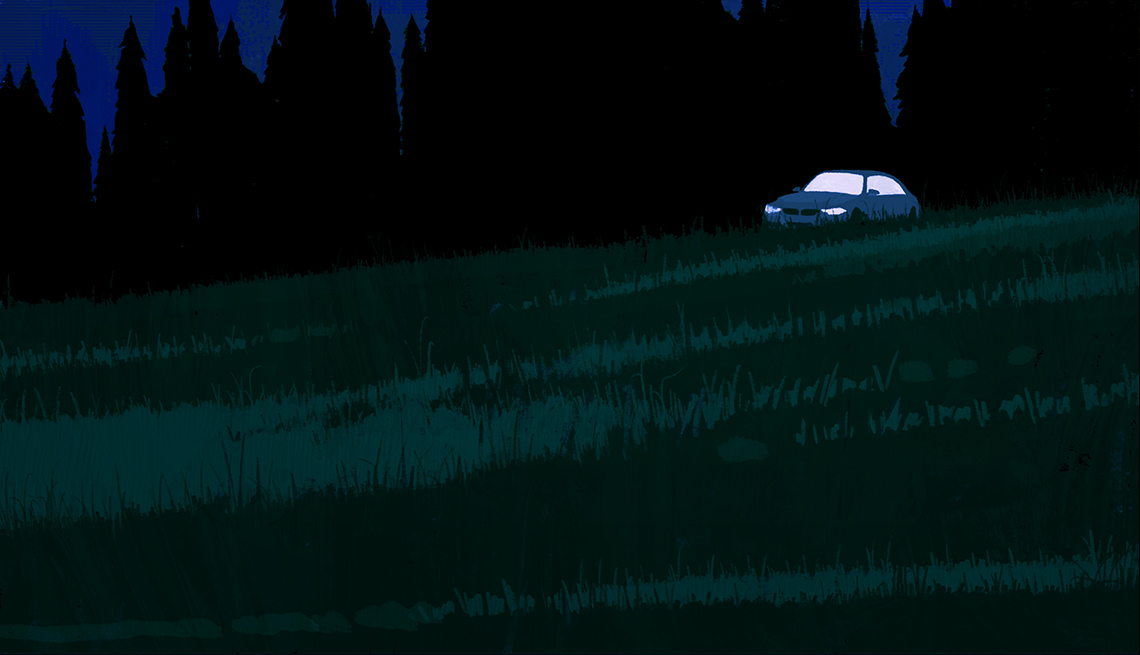
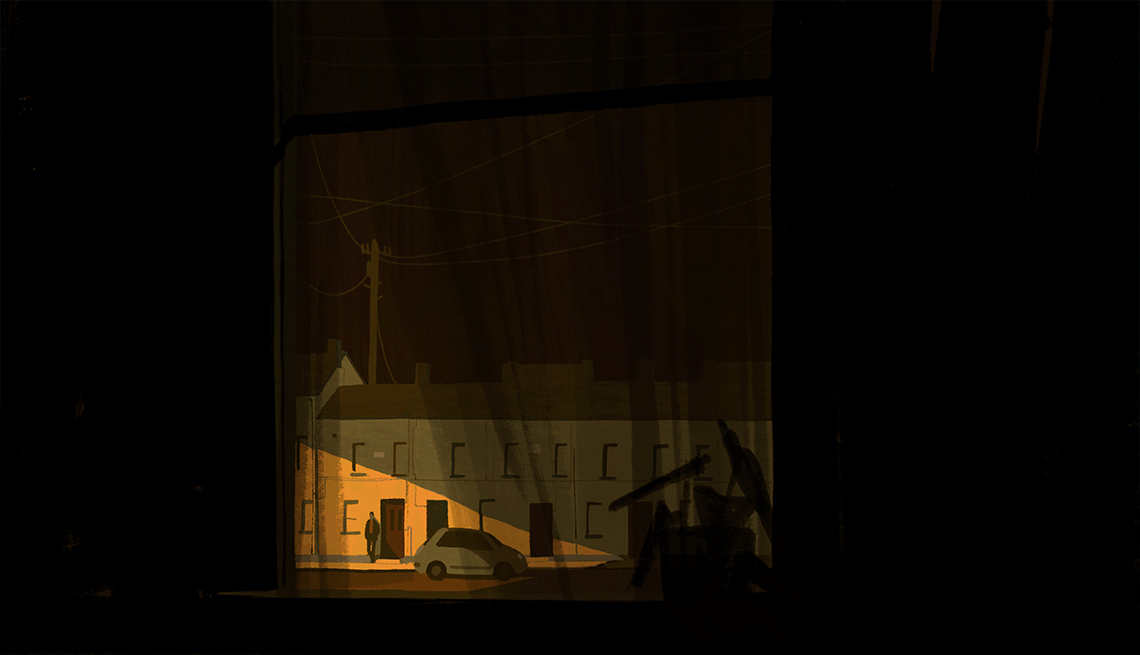
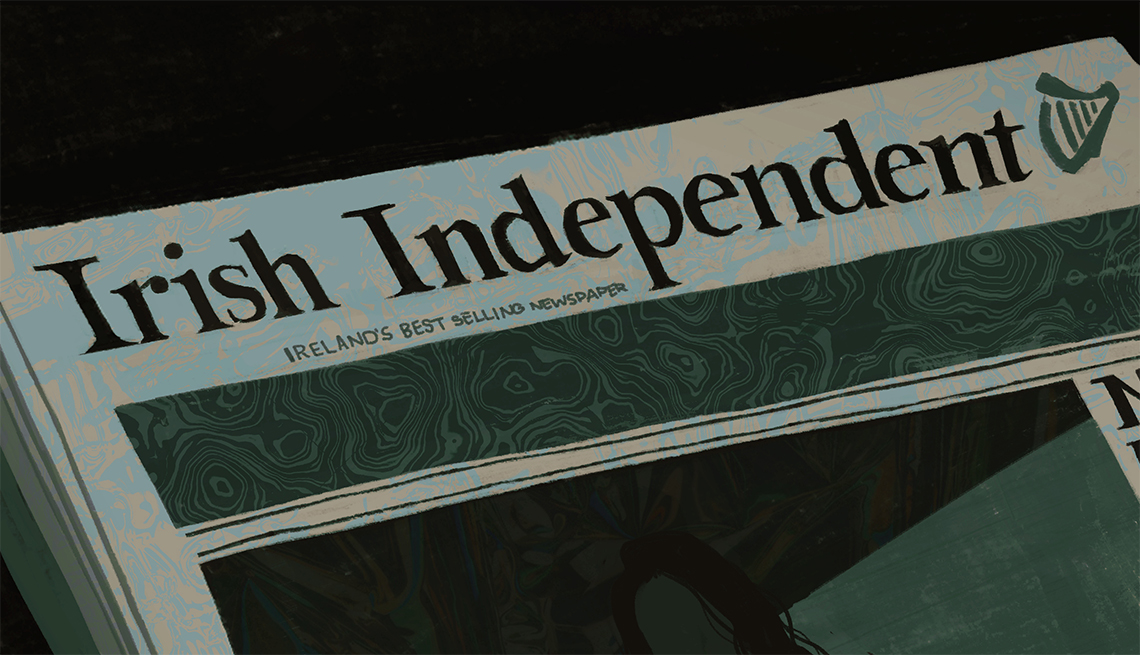



More From AARP
Free Books Online for Your Reading Pleasure
Gripping mysteries and other novels by popular authors available in their entirety for AARP members